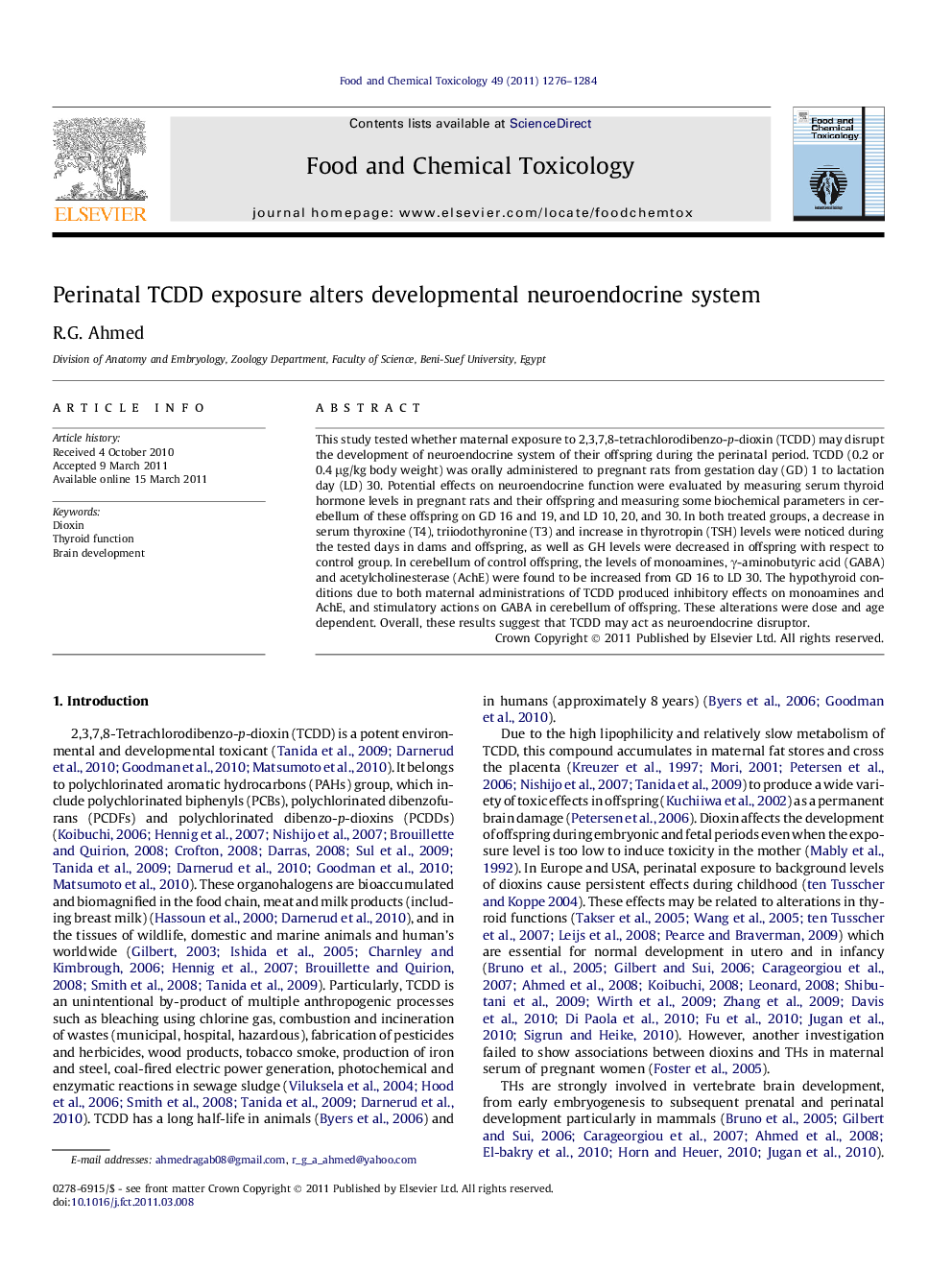| Article ID | Journal | Published Year | Pages | File Type |
|---|---|---|---|---|
| 5853427 | Food and Chemical Toxicology | 2011 | 9 Pages |
This study tested whether maternal exposure to 2,3,7,8-tetrachlorodibenzo-p-dioxin (TCDD) may disrupt the development of neuroendocrine system of their offspring during the perinatal period. TCDD (0.2 or 0.4 μg/kg body weight) was orally administered to pregnant rats from gestation day (GD) 1 to lactation day (LD) 30. Potential effects on neuroendocrine function were evaluated by measuring serum thyroid hormone levels in pregnant rats and their offspring and measuring some biochemical parameters in cerebellum of these offspring on GD 16 and 19, and LD 10, 20, and 30. In both treated groups, a decrease in serum thyroxine (T4), triiodothyronine (T3) and increase in thyrotropin (TSH) levels were noticed during the tested days in dams and offspring, as well as GH levels were decreased in offspring with respect to control group. In cerebellum of control offspring, the levels of monoamines, γ-aminobutyric acid (GABA) and acetylcholinesterase (AchE) were found to be increased from GD 16 to LD 30. The hypothyroid conditions due to both maternal administrations of TCDD produced inhibitory effects on monoamines and AchE, and stimulatory actions on GABA in cerebellum of offspring. These alterations were dose and age dependent. Overall, these results suggest that TCDD may act as neuroendocrine disruptor.
⺠TCDD exhibits endocrine-disrupting action on the development of TH axis. ⺠TCDD shows neural-disrupting action on brain development. ⺠Maternal administrations produced a disturbance in cerebellum of offspring. ⺠Restrictions on TCDD to avoid the specter of complications arising in the future.
